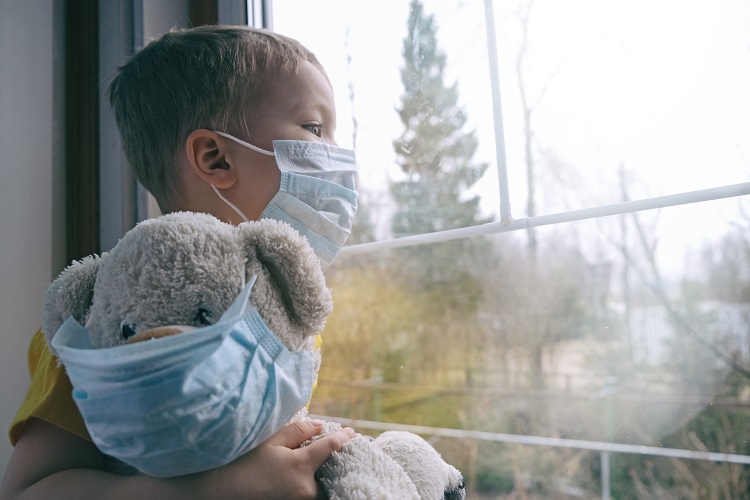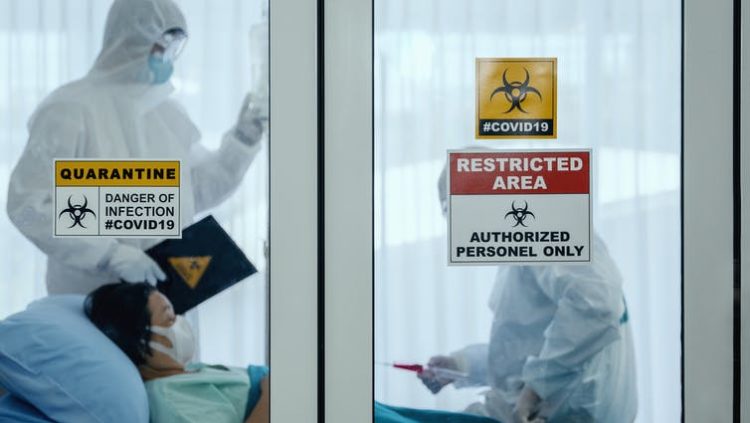Coronavirus: UK must get real about exit strategy prospects
Professor Sir Ian Boyd’s article, Coronavirus: UK must get real about exit strategy prospects, is published in The Conversation.
Professor Sir Ian Boyd is a marine and polar scientist with a distinguished career which has focused on the management of human impact on the environment.
He has held significant scientific posts including serving as a Science Programme Director with the British Antarctic Survey, creating the Scottish Oceans Institute (SOI) at the University of St Andrews and the Marine Alliance for Science and Technology for Scotland (MASTS), as well as serving as Chief Scientist to the Behavioural Response Study for the US Navy.
He served as Chief Scientific Officer to DEFRA (the UK government’s Department for Environment, Food and Rural Affairs) from 2012 until last year when he was knighted for his services to science and economics on food and the environment.

Talk about the lifting of restrictions to curtail the coronavirus is beginning to emerge in the UK. But expectations of this happening in a matter of weeks fail to acknowledge what really faces the country. Some blunt messages are now needed.
Discussion of “exit strategies” is premature when we have not even yet settled on a long-term control strategy. Everything done to date has been a tactical manoeuvre to avert a real disaster. It does not solve the basic problem – there is no exit in sight.
Facing reality
Strategically, we need to plan for the worst and hope for the best. Excessive optimism may be good for morale, but the deep-rooted reasons for the current predicament need to be understood. These relate to our complete misunderstanding of risk. We need to ground our judgements in three facts:
- We have no vaccine and no imminent prospect of a vaccine, and we need to avoid optimism bias about how quickly this will arrive.
- We cannot reliably detect people who have been exposed to the virus and may be immune.
- We have no clearly effective clinical treatments to mitigate the worst effects of COVID-19 when infection happens.
On the positive side, we might get a useful serological test (a blood test that looks for antibodies) for immunity perhaps within the next six months, and we will gradually get better at treating people who have acute illness. But the virus itself will be evolving, meaning we can’t treat it like a fixed toxin that just needs to be purged from our system.

Purging the global population of a highly infectious disease is extraordinarily difficult. In all of history we have only managed to eradicate two diseases – smallpox and rinderpest – because of strict controls and large-scale vaccination programmes. Even if we are successful in driving down disease, as in Wuhan, at the scale of a whole country, the SARS-CoV-2 virus (the virus that causes COVID-19) will be lurking somewhere, waiting to break out again. Any return to normal business will mean the return of COVID-19.
Available options
There are, therefore, two versions of the future after the COVID-19 pandemic. One says that we all get back to normal as quickly as possible – a vision of economic and social resilience to the ongoing events. The more realistic alternative is that life will be different and the world will never be quite the same again.
Relaxing distancing measures will have to happen sometime in the next few months. Not because it is the best way to conquer COVID-19, but because the costs, in terms of human health and welfare, will eventually outweigh the benefits. But even then, the process of relaxation will probably take many months or years.
While there is a significant number of susceptible (non-immune) people in the population, relaxation of measures will just expose them to more risk. What does this mean for how we live lives in the UK? In my view, freedom of movement is impractical. Tracking how we move and with whom we associate is inevitable, even if this is anathema to civil libertarians.
Assuming we will eventually succeed in developing a reliable antibody test, it might be possible that people who have significant antibodies to COVID-19 will be able to circulate more freely than people who do not. Only if a useful vaccine is developed will there be a possibility for most people to be immunised and return to the kind of normal travel we have experienced in the past few decades. Until then, there will be those who are free to travel and those who are not.

This signals a very significant change in the way society is structured and functions. We now know that virtual meetings work. I estimate I could reduce my travel by at least 60% and remain just as effective as I was before COVID-19 arrived; we have learned a new way to communicate and work effectively. Will there really be a need for crowded commuter trains, low-cost shuttle flights or high-speed trains in future?
More crucially, now that we have been forced to pause the continuous cranking of economic growth which devours resources and drives up pollution, there is an opportunity to press the “reset” button on what we value.
The welfare of people and the planet is paramount, and the economic models which have dominated for the past 50 years have done little to care for either. There could be a silver lining to the collapse of the current economic systems: the phoenix that emerges could be much better for future generations even if the cost right now is high. We cannot let this opportunity pass.
Professor Sir Ian Boyd’s article, Coronavirus: UK must get real about exit strategy prospects, was first published in The Conversation on 16 April 2020.